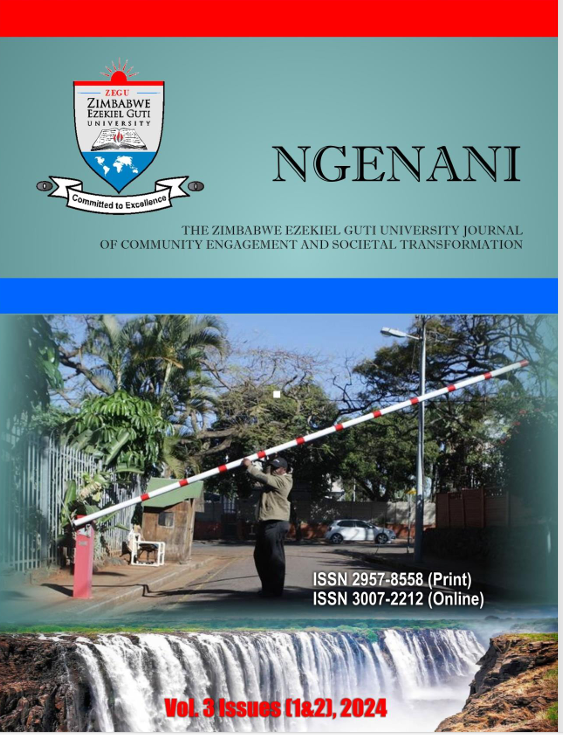Numerating the Impacts of Climate Change and Degradation Environmental In Vulnerable Communities and Their Resilience in Zimbabwe
DOI:
https://doi.org/10.71458/m3hagy67Keywords:
rural poor, marginalised societies, hazards, susceptibilityAbstract
This article critically discusses the adverse impact(s) of climate change and environmental degradation in vulnerable communities and their attendant resilience strategies in Zimbabwe. Communities that occupy peripheral or environmentally degraded areas frequently struggle daily to survive and are not capable to deal with any other stress factors. The research method utilised in this study was secondary data analysis to gather literature and analyse findings to answer the research topic. Results highlight that, climate change and environmental degradation are partly to blame for the vulnerable groups’ persistent poverty and hunger as they depend heavily on subsistence economies and natural resources for their survival. This, in turn, has hindered their ability to build resilient communities as their stresses are interlinked. The study concludes that Zimbabwe’s ability to reduce and adapt to climate change must be reinforced. Refining our understanding of how environmental vulnerability is connected to vulnerable communities and their resilience is novel and crucial in mapping strategies for developing and engendering resilience. It is important for governments to support communities to diversify livelihood and fall-back alternatives.




